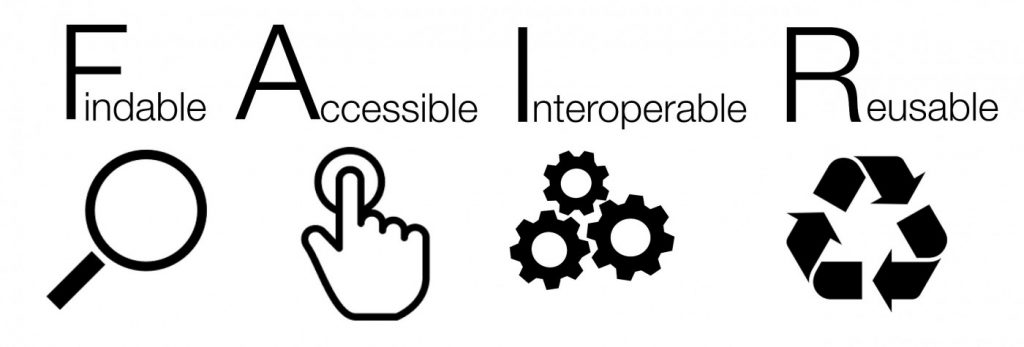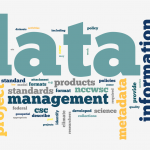
FAIR guiding principles for data resources (SanguaPundir 2016) CC-BY-SA
FAIR aims to improve the value and impact of research data by ensuring it is Findable, Accessible, Interoperable and Re-useable. Many journals and funders have made it a condition for successful submission or grant applications. Over a series of posts I will look at each one and explain what this means for the data you produce. Click here if you want to read the previous post on Findability.
Accessible
Research data should be “as open as possible, as closed as necessary” (Horizon 2020). It should be available freely for others to use and restricted only so far as to meet legal and ethical requirements. A few things should be considered at the planning stage to ensure that your data cannot only be found, but can also be accessed:
- Make sure you ask participants for permission to make data available. This clause is included in BU’s Participant Agreement Form Templates.
- Identify whether sensitive personal information is likely to be collected and consider how the data can be anonymised. You will need to factor in time and any costs associated with this.
- If using third-party data, check the terms of any license attached to the data and/or seek permission to re-use from the copyright holder.
- Identify who the copyright holders are for the final dataset. This is particularly important if working collaboratively with partners outside of BU. Copyright ownership should be stated in any contractual agreement.
Some repositories allow access to data to be restricted. For example, if it is not possible to anonymise sensitive data. This needs to be stated clearly in your Data Management Plan (DMP) as funders/journals will usually need to review this.
For more information visit the Library’s Research Data Management guide or email bordar@bournemouth.ac.uk.
Dan Bailyes
Faculty Librarian (FMC) and LLS lead for Research Data Management (RDM)
References
SanguaPundir., 2016. FAIR guiding principles for data resources [image]. Wikimedia Commons. Available from: https://commons.wikimedia.org/wiki/File:FAIR_data_principles.jpg [Accessed 08 July 2021].
 Research Data Management and Sharing – MOOC
Research Data Management and Sharing – MOOC










 Conversation article: Why so many people drown at the water’s edge
Conversation article: Why so many people drown at the water’s edge Workshop on longitudinal studies in three countries
Workshop on longitudinal studies in three countries New Bournemouth University public health paper
New Bournemouth University public health paper New ACORN-funded paper published. When time is short but passion for food is strong, food day-tripping may be the answer!
New ACORN-funded paper published. When time is short but passion for food is strong, food day-tripping may be the answer! Royal Society of Chemistry Outreach Fund: Open for Applications
Royal Society of Chemistry Outreach Fund: Open for Applications Last reminder – MSCA Postdoctoral Fellowships 2024 internal deadline next week
Last reminder – MSCA Postdoctoral Fellowships 2024 internal deadline next week Horizon Europe – EuroHPC and MSCA PF webinars
Horizon Europe – EuroHPC and MSCA PF webinars